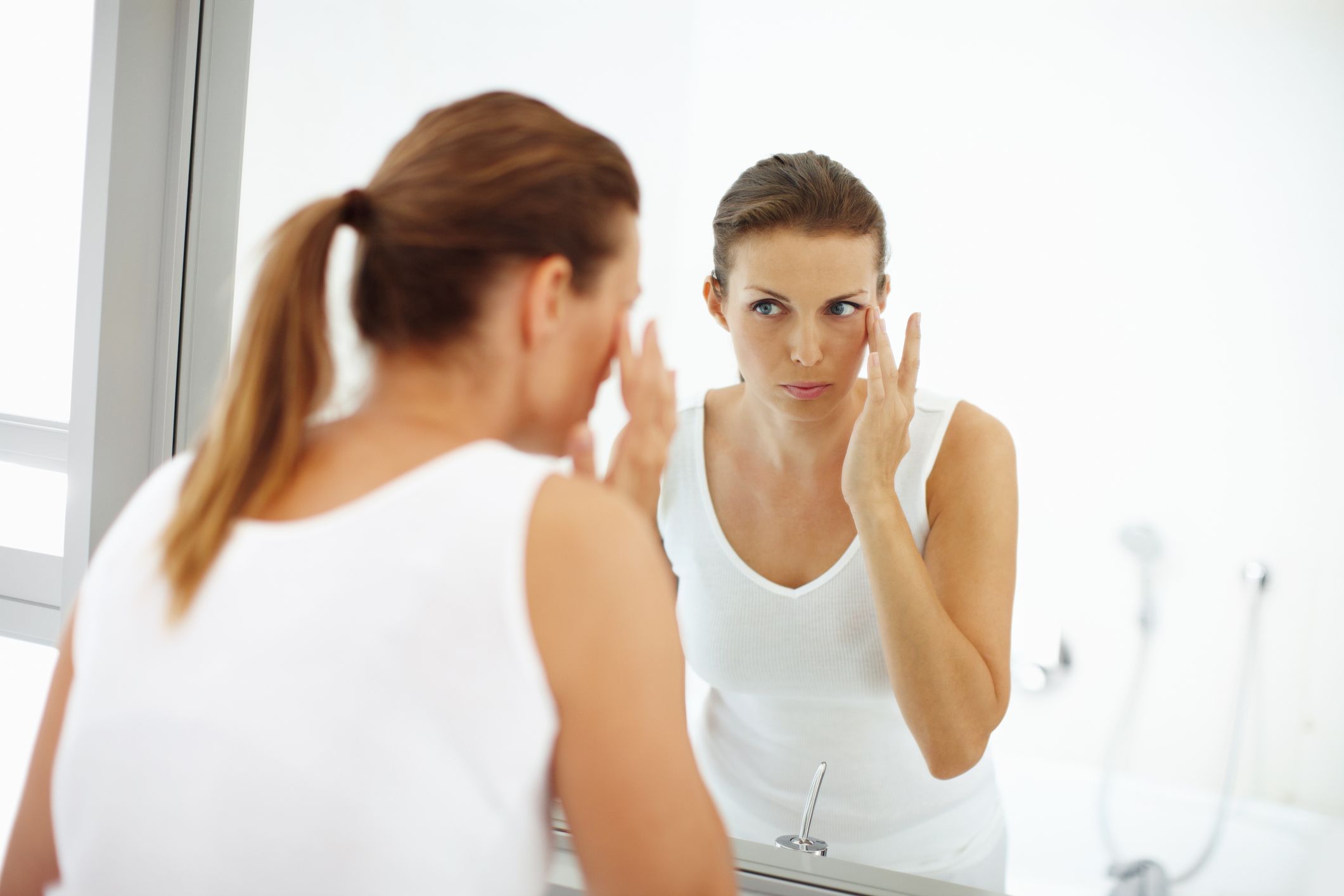Ugh! Your eyes didn't look this awful when you went to sleep last night. But this morning, they appear so puffy and swollen. How did your eyes change so much since you put your head down on your pillow?
Rest assured, it usually isn't a reason to worry about. Once you learn the culprit behind why your eyes look so puffy, find out how to get rid of puffy eyes.
Note: Eye swelling usually goes away on its own in a day. If the puffiness is still around after 24 to 48 hours, contact your health care or eye care professional to make sure something else isn't going on.
Read on to find out what's causing all this swelling.
You had a poor night's sleep.
A bad night's slumber can cause your eyes to look swollen when you wake up in the morning. That's especially the case when you're stressed. Why? Your body releases the hormone cortisol, which changes your body's salt balance. Because your salt balance is out of whack, you may retain water in the eye area, leading to swelling of tissues around your eyes.
You have a thyroid condition.
Puffy eyes may be a side effect of some types of hyperthyroidism—an overactive thyroid. You may get a thickening of the fat around your eyes, which causes puffiness.
You're suffering from edema.
If your eyes are puffier when you wake up in the morning, it may be due to fluid retention, called edema. (Fluid may be more likely to get trapped in your lower eyelid as you get older.) Once you wake up and start blinking, you may notice that your eyes start to look less puffy.
You hiked up the heat.
When you crank up the temperature in your house, your eyes can become more sensitive and drier. That's because heat can dry out your eyeball's mucous membranes. That makes the tissue in your eyes thicken and get more irritated. And that leads to puffiness.
You're not thoroughly rinsing your face and hair.
Face cleansers (especially ones with salicylic acid, glycolic acid or retinol), shampoos and conditioners can get trapped in the folds of your eyelids. Further irritation can be caused by eye makeup removers, eye shadows and mascara, which boast fragrances and preservatives. You rub your eyes to get rid of the irritation. That rubbing creates inflammation. And that leads to leaky blood vessels. The fluid that seeps out gets to the nearby tissues, creating puffiness.
You're suffering from seasonal allergies.
When you have allergies, your eyes are contacting airborne allergens. When those allergens hit your eyes, they dissolve in your tears and contact the lining of the eye. They react with antibodies that are tied to the cells in your eyes. That causes your body to release histamine (a chemical your immune system makes) into your system. Sometimes, when histamine releases into the skin, it can cause a hive-like reaction, especially around the eyes.
You've been crying.
When you cry, your eyes are working hard to make tears. Since the eye glands must work overtime to make tears, they're creating tear fluid that's waterier and less salty. So, the differences in salt concentration between these tears and the surrounding tissues causes some swelling of the eyelid.
You're dealing with that time of the month.
Blame it on being a woman. Just like how you bloat all over when you have your period, your eyes can do the same. Eye swelling caused by your period typically goes away after a few days.
You drank too much.
Did you overdo it at happy hour? Your eyes bear the impact of even small changes in your diet. So, if you drink too much alcohol, your body can get dehydrated—the same goes for your eyes.
You're aging.
Unfortunately, aging is a cause of puffy eyes. Over time, the tissue in your eyelids can weaken. That can cause fat to fall in your upper eyelid and come to rest in your lower eyelid.
- What Causes Under-Eye Circles and How to Get Rid of Them ... ›
- Ocular Allergies - HealthyWomen ›
- How to Get Rid of Puffy Eyes - HealthyWomen ›


